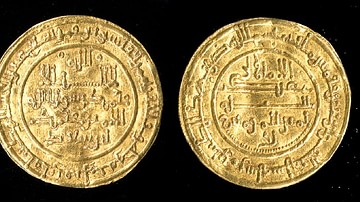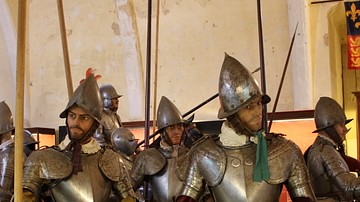Search
Did you mean: Empire?
Search Results

Video
The Age of Exploration: Crash Course
The thing about European History is that it tends to leak out of Europe. Europeans haven't been great at staying put in Europe. As human beings do, the people of Europe were very busy traveling around to trade, to spread religion, and in...

Video
The Rise of Russia & Prussia: Crash Course
In eastern Europe, in the 17th Century CE a couple of "great powers" were coming into their own. The vast empire of Russia was modernizing under Peter the Great, and the relatively tiny state of Prussia was evolving as well. Russia (and Tsar...

Video
Expansion & Consequences: Crash Course European History #5
European exploration had a lot of side effects. When the Old World and the New World began to interact, people, wealth, food, animals, and disease began to flow in both directions. In the New World, countless millions were killed by smallpox...

Video
Indus Valley Civilization: Crash Course World History #2
In which John Green teaches you about the Indus Valley Civilization, one of the largest of the ancient civilizations. John teaches you the who, how, when, where and why of the Indus Valley Civilization, and dispenses advice on how to be more...

Video
Nisibis 217 AD - Roman-Parthian War DOCUMENTARY
The conflicts between the Empires of Iran and Rome started as soon as their borders collided and continued for many centuries starting with the Parthian triumph over the triumvir Crassus at Carrhae all the way to the bloody war of 602-628...

Video
Overview of Ancient Persia
This brief video explains the origin of the terms "Persia" and Zoroastrianism. It also puts the Median, Achaemenid, Seleucid, Parthian and Sassanian Empires in context.

Article
Fall of the Western Roman Empire
To many historians, the fall of the Western Roman Empire in the 5th century CE has always been viewed as the end of the ancient world and the onset of the Middle Ages, often improperly called the Dark Ages, despite Petrarch's assertion. Since...

Article
Mesopotamian Inventions
Mesopotamian inventions include many items taken for granted today, most of which were created during the Early Dynastic Period (2900-2334 BCE) or developed from achievements of the Uruk Period (4100-2900 BCE). The Sumerians are credited...

Article
The Gold Trade of Ancient & Medieval West Africa
West Africa was one of the world's greatest producers of gold in the Middle Ages. Trade in the metal went back to antiquity but when the camel caravans of the Sahara linked North Africa to the savannah interior, the trade really took off...

Article
Weapons of the Conquistadors
The Iberian conquistadors ("conquerors") were the first military men to explore, attack, and conquer territories in the Americas and Asia that would then become a part of the Spanish or Portuguese Empire. Indigenous peoples could not match...